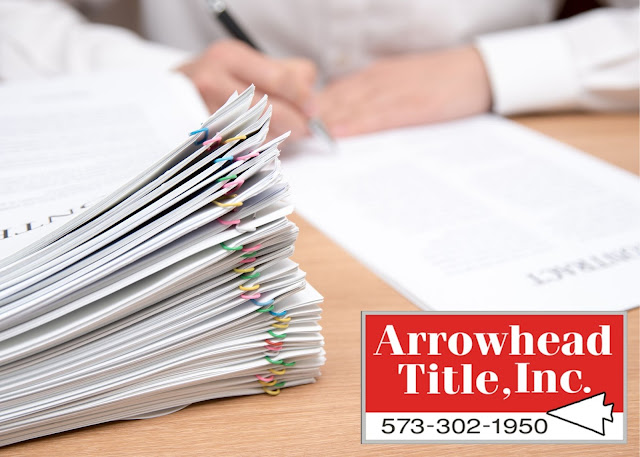Just the Facts: 1031 Exchange
As the best title company at the Lake of the Ozarks, Arrowhead Title strives to educate our clients with title and real estate knowledge to help in the decision-making process. We find that our clients appreciate and are welcoming to the information to assist them in making these important decisions confidently. In this week’s blog, we’re going to be talking about 1031 exchanges – a strategic investment tool that can help savvy investors build wealth.
What is a 1031 Exchange?
A 1031 exchange is a “like-kind” investment strategy where investment property is swapped for anther. This allows savvy investors to defer capital gain taxes (until cash-out) and build wealth. The IRS Section 1031 mandates that only “like-kind” investment properties can be swapped, limits use with vacation properties, has certain time frames, and tax implications.
The Rules for Depreciable Property
When swapping property that is deemed depreciable by the IRS, it can trigger what’s called a depreciation recapture. This results in a profit that is taxed as ordinary income. In instance of this type of trade would be exchanging improved land with a building for unimproved land without a building. Therefore the “like-kind” rule comes into effects, negating any direct profit that would constitute an ordinary income tax.
Recent Changes to 1031 Exchanges
In 2017 the Tax Cuts and Jobs Act (TCJA) changed the existing rules of the 1031 that used to allow the exchange of some personal property, such as franchise licenses, aircraft, and equipment. However, under the new law, only real estate qualifies. The TCJA did enhance the expensing allowance for certain tangible personal property that could help mitigate this change. There was also a transition rule implemented that allows a 1031 exchange of qualified personal property in 2018, if the original property was sold or replacement property was acquired by December 31, 2017.
Tax Implication of a 1031 Exchange: Cash & Debt
In some instances, you may have cash left over after the
intermediary assumes the replacement property. After 180 days the “boot” will
be paid to you and taxed as partial sales proceeds from the sale of your
property – generally as a capital gain. For examples, a $500,000 mortgage on
the old property traded for a new property with a mortgage of $400,000 would
result in a $100,000 “boot,” to be paid to you and taxed accordingly. You
should always consider mortgage loans and other debt associated with the
property you’re relinquishing, as well as debt obligations on the replacement
property.
The Lake of the Ozarks' Most Trusted Title Company







Comments
Post a Comment